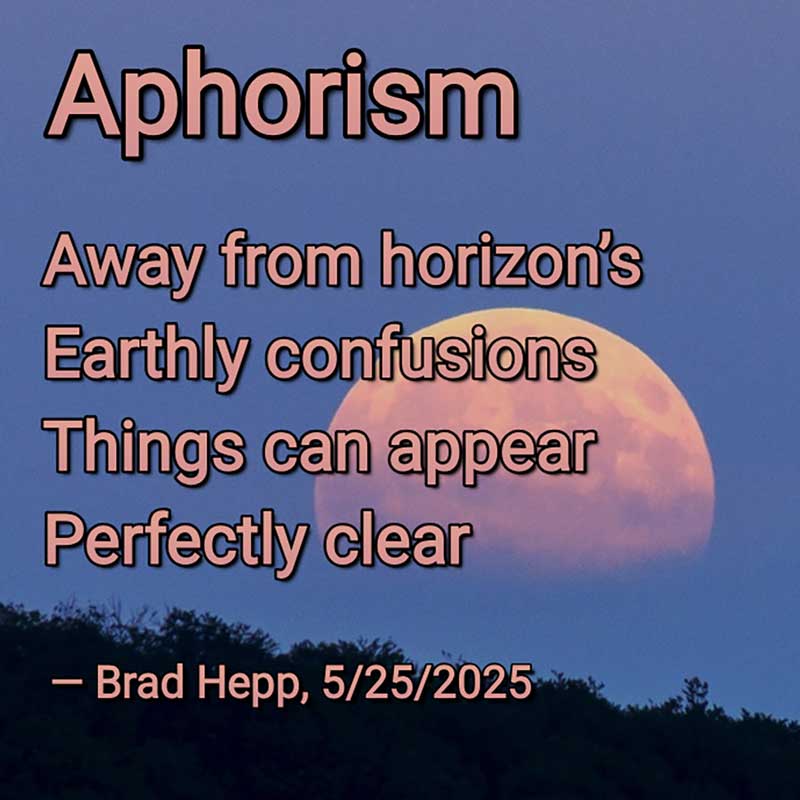(if you are viewing this via email, the website has a recording of this poem and commentary; click the title above)

Commentary
As I write this little poem, I can’t help but think of a friend who is really good with Greek and Latin sources of English words. Where I am CREATIVE in my etymology, he is CORRECT. So, take my poem with a grain of salt. My friend hasn’t weighed in yet. In any case, it is generally more fun than accurate to define a word by its origin (see “What Is the ‘Etymological Fallacy?‘”).
MORE FOR THE NERDS
Another friend pointed out that many of my poems express aphorisms. What’s that? When I looked up the word, AI supplied the following overview (when you have read that, you may come up with a better mnemonic for yourself than my poem; feel free to share that in the comments):
Further back, ‘aphorizein’ comes from ‘apo’ (off)* and ‘horizō’ (I divide, bound), ultimately stemming from ‘horos’ (boundary). In essence, the term suggests a concise statement that clearly defines or marks off a truth or principle.
Here’s a more detailed breakdown:
Ancient Greek:
The word “aphorismos” (ἀφορισμός) meant a concise, pithy statement, a definition, or a delimitation.
Etymology of ‘aphorismos’
‘Aphorizein’ (ἀφορίζω): To define, mark off, or determine.
‘Apo’ (ἀπό): Off.
‘Horizō’ (ὁρίζω): To divide, bound.
‘Horos’ (ὅρος): Boundary.
__________
*some people believe that “apo” more frequently means “away from.”
(background image by Heiko Stein on Pixabay)